OceanICU IS ORGANISED INTO EIGHT FOCUSED WORK PACKAGES
OceanICU’s 30 partner consortium combines diverse expertise and organisational structures to enable each part of the project’s value chain to be delivered effectively.
The innovation early in the project is delivered by universities and large research centres who offer the possibility for graduate and undergraduate student engagement, and laboratories offering access to large scale infrastructure and ships.
During the exploitation phase, the work is led by government research labs, international science organisations and EU structures that link through to International structures and ultimately to end users.

WP1 | Programme Management & Communication
WP1 Leader: Richard Sanders (NORCE)
All partners will contribute to achieving various tasks associated in WP1.
The coordination of the OceanICU consortium and project activities is led by the Norwegian Research Centre As (NORCE). For the project life cycle, the WP1 group will foster a supportive and collaborative culture among the 30 partner companies to ensure the timely delivery of all project objectives and deliverables, and to ensure that the project’s sustainability and legacy is integrated in all aspects of the project throughout its lifecycle.
In addition, WP1 is responsible for providing effective communication around the OceanICU programme by raising awareness of the project’s aims, achievements and its outputs; and to raise awareness with European citizens on the importance of the Ocean’s role in climate change.
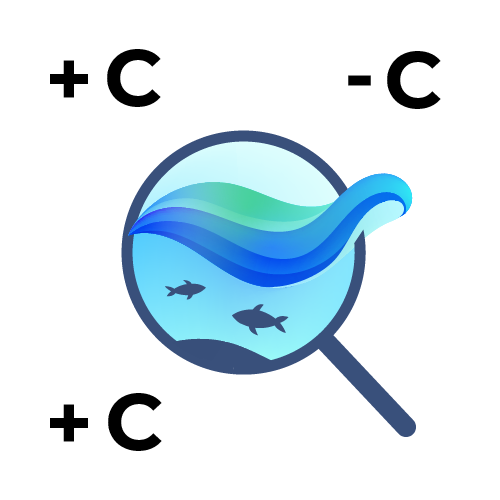
WP2 | Understanding the Current State of the Ocean Carbon Cycle
WP2 leaders: Siv K Lauvset (NORCE), Andrew Watson (University of Exeter), Marion Gehlen (CEA)
Contributors: UiB, AWI, NOC, LSCE, Heriot-Watt, MI, GEOMAR; in addition all partners will contribute to tasks associated with this work package.
The WP2 group will assess the current state of the Ocean Carbon Cycle through the investigation of its various pumps, thus providing an increased understanding and level of predictability regarding how human activities are impacting the carbon cycle, in support of the Intergovernmental Panel on Climate Change (IPCC) process.
- To perform a whole ocean carbon budget evaluation to resolve current major discrepancy between modelled and observed estimates of Ocean and anthropogenic carbon uptake and storage and to provide diagnostics in support of the GCP and the Intergovernmental Panel on Climate Change (IPCC).
- To establish the size of and controls of the different pumps to test the classical assumption that they are unchanged by climate change.
- To establish the role of fishing and industrial extraction processes on the Ocean Carbon Cycle and to deliver an estimate of the current state of the Ocean C Cycle to WP7 as the basis for its tasks.
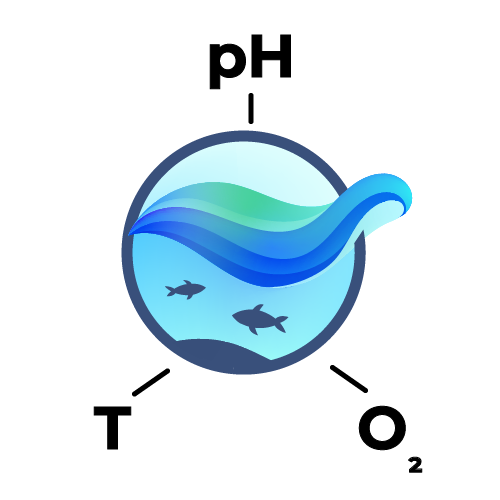
WP3 | Impacts of Abiotic Climate Stressors (pH, O₂ & T) on the Biological Carbon Pump (BCP)
WP3 Leader: Jan Taucher (GEOMAR), Heriot Watt (Poulton)
Contributors: GEOMAR, Heriot Watt, Liverpool, NUI Galway, ULPGC, Exeter, LSCE
The key focus for WP3 is to undergo research activities to investigate the impact of ocean climate (temperature, T), acidification (pH) and deoxygenation (O2), and in light of recent increases in fire intensity, ash deposition on the biological carbon pump functioning. This will involve data synthesis, fieldwork in the Canaries and Southern Ocean, habitat and resilience model development to generate new understanding and parameterizations of the impact of climate multi-stressors (T, pH, O2, Aerosol) in the biological carbon pump. Key results will be introduced to models in collaboration with the partners in WP5.
- Establish the role of T, pH and O₂ on the surface production and quality of biogenic matter
- Establish the role of T, pH and O₂ on remineralization length scales
- Assess the relative sensitivity of major contributors to the carbonate pump to T, pH and O₂.
- Develop parameterisations linking key processes to environmental and biological parameters.

WP4 | Ecosystem controls on carbon sequestration
WP4 Leaders: Stephanie Henson (NOC) and Javier Arístegui (ULPGC)
Contributors: DTU-Aqua, AMU, AWI, University of Azores, PML, IIM-CSIC, IMR
This WP4 group will measure and quantify key ecological processes within the biological carbon pump related to the ecosystem structure. This activity will involve data synthesis and fieldwork across the whole Atlantic and in the Arctic to generate a new understanding of these processes and define parameterisations to model higher trophic level behaviour, active transport by vertical migrants, and dark carbon fixation/ respiration.
- Quantify the role of higher trophic levels in attenuating particle flux via fragmentation and feeding.
- Quantify the contribution of higher trophic levels to the biological carbon pump via active fluxes and shunts.
- Determine interior respiration and dark carbon fixation,
- Develop an internally consistent carbon budget in one location to test our understanding.
- Develop parameterisations linking key processes to environmental and biological parameters.
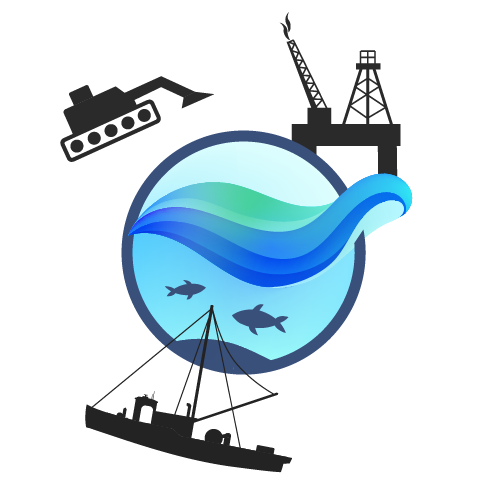
WP5 | Impacts of Fishing and Industrial Extraction processes on the Ocean C cycle
WP5 Leaders: Dave Reid (Marine Institute), Matthias Hauckel (GEOMAR)
Contributors: NIOZ, PML, DTU-Aqua, English Nature, Agrocampus Rennes, Strathclyde University, SPC
The WP5 group will quantify the impact of resource extraction processes–mining, dredging, drilling and trawling as well as fisheries–on the contemporary Ocean carbon cycle.
- Assess the impacts of seabed mining and drilling on sediment in the water column on carbon sequestration.
- Evaluate the impacts of bottom trawling and dredging on biogeochemical and biological processes influencing carbon sequestration.
- Determine the scale and impacts of on-and off shelf fishery removals directly on carbon sequestration, and indirectly via food web changes, including relevant impacts on the seabed.
- Provide knowledge, parameterizations and scenario output for habitat models and fishing pressure impacts on carbon sequestration.

WP6 | Determine significance of key processes in the evolving Ocean C Cycle
The WP6 Leaders: Iris Kriest (GEOMAR) and Jerry Blackford (PML)
Contributors: DTU, IMR, BB, CEA/LSCE, UiB, NORCE and all partners.
WP6 will incorporate the new knowledge from WP 3-5 into the framework of the OceanICU modelling tools–regional, basin scale and global Earth system models–to resolve and to quantify the importance of key biological processes on regional and global carbon cycles under a range of climate pathways.
- Provide an efficient and versatile model framework to test new process parameterizations.
- Assess and rank process parameterizations for impact on carbon storage.
- Improve predictive skills of global and regional ocean carbon sinks via refined process representations.
- Quantify, assess and reduce the model uncertainty of shelf to open ocean carbon exchanges.
- Reduce the uncertainty and determine the efficiency of natural carbon sink processes relating to climatic and human activities in regional shelf systems.
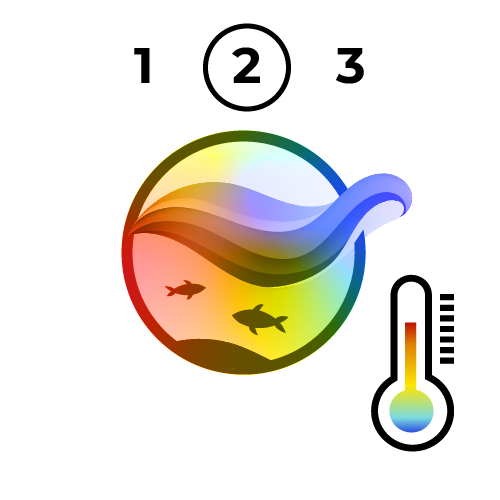
WP7 | Decision Support Tools for Ocean Carbon Management
The WP7 Leaders are: Michael St John (DTU) & Jorn Bruggeman (Bolding & Bruggeman Aps)
Contributors: METU, SSBE
WP7 will co-design and develop a suite of Decision Support Tools suitable for predicting the impact of climate change and resource management decisions on the Ocean carbon cycle.
- Develop a library for data handling, analysis and visualisation of observations and model data, and demonstrate its functionality as a light-weight, user-friendly tool.
- Provide stakeholders with an analysis tool to identify key vulnerabilities, pressure-impact linkage chains and the resilience of the solubility, carbonate and biological carbon pump to multi-stressors including evaluation of geoengineering- and nature-based-solutions at regional scales.
- Develop and demonstrate a user-friendly, machine-learning-based interactive tool allowing stakeholders to set management options and evaluate the ramification of management actions and thereby reduce cumulative impacts and risks.
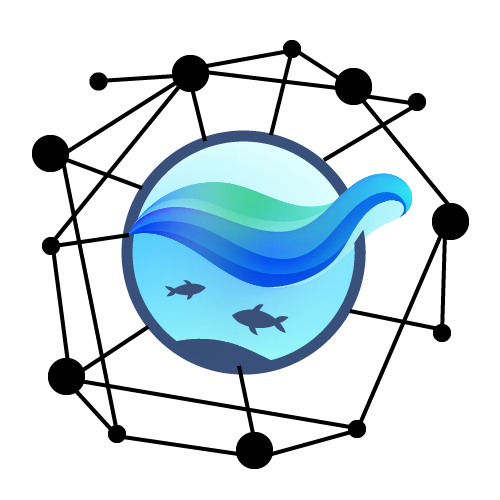
WP8 | Connecting OceanICU to Society
The WP8 Leaders are: Debbi Pedreschi (MI), Mary Wisz (WMU), Nathalie Van Isacker (SSBE)
Contributors: GEOMAR, DTU, NORCE
The WP8 group is tasked with integrating a broad range of stakeholders into the OceanICU program to ensure project goals and deliveries are codesigned and developed, and to sustain a broader engagement with a wide range of end users to demonstrate that project outcomes are communicated and incorporated in a useful way.
1) To work with decision makers and related stakeholders in order to:
- Identify gaps, synergies and opportunities among policies to protect and enhance the biological carbon pump.
- Identify questions and scenarios realistic for decision making and negotiations.
- Assess uncertainties in decision making processes, such as the influence of power plays and decision silos.
- Communicate the OceanICUs message to international environmental protection organisations and to inform international policies on protecting the biological carbon pump and fish carbon credits within the carbon market.
2) To engage with representatives from the fishing and mining industries, and environmental and conservation agencies interested in fisheries, mining, marine conservation, and climate change in order to collaboratively:
- Assess the current understanding, perceptions, and needs in relation to oceanic carbon among relevant eNGO and industrial groups, such as mining, trawling, drilling, dredging and fishing.
- Identify key emerging threats and trajectories to industry and/or expected changes which may change interactions with the oceanic carbon cycle, and use these to define scenarios of interest and societal relevance for use in the decision-support tool being developed by WP7.
- Produce a multi-sectoral, multi-pressure oceanic carbon risk assessment to enable identification and prioritisation of societally-relevant carbon-related impacts and threats, and their impacts on associated ecosystem services.
3) To engage with young people aged, 16-30 years old, including students in secondary school, higher education students, young professionals and young people who are passionate about the ocean in order to:
- Develop their interest and understanding of Ocean carbon and the crucial role the Ocean carbon cycle plays in regulating global climate.
- Ensure that the outputs of the OceanICU project and new knowledge about Ocean carbon becomes available as both informal and formal education material in the form of new resources and tools that meet the needs of teachers and educators.
- Demonstrate an approach to connecting science to the wider society that can be replicated at a larger scale in the future.
